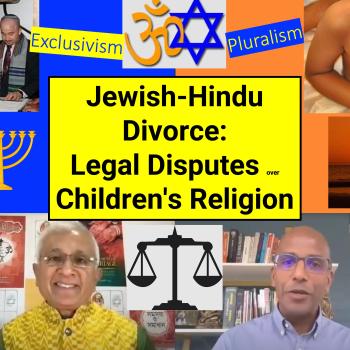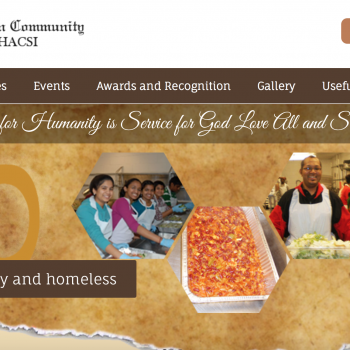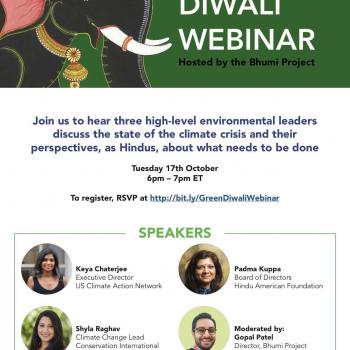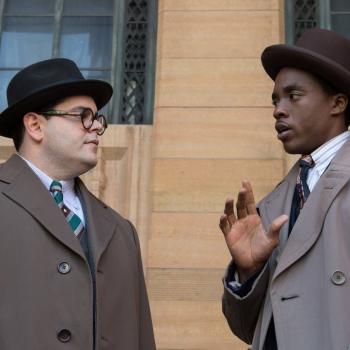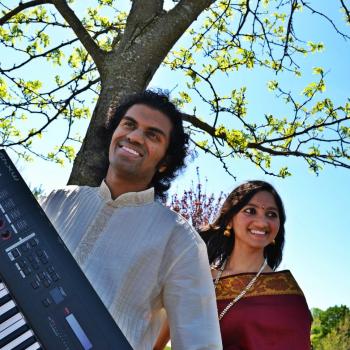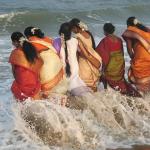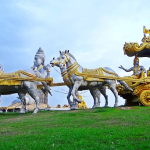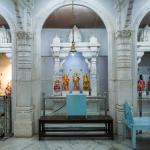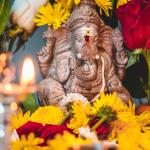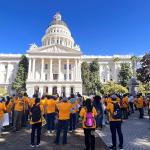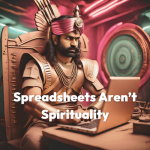Editors’ Note: This article is part of the Public Square 2014 Summer Series: Conversations on Religious Trends. Read other perspectives from the Patheos community here.
This summer has been one of ups and downs, showcasing the critical relationship between race, religion and the struggle for human rights. My summer began with a workshop in June: along with about 150 others, ranging from representatives of various religious groups to public policy makers, I had an opportunity to listen to experts and ask them questions about crucial issues to better understand the role of religion in global conflict. At one specific panel, the discussion focused on the responsibility to protect, and it was not the panelists that I had questions for, but a person seated at my table. Since he was from the Mennonite community, I knew that he was deeply rooted in peace activism. The backdrop of our conversation included his statement to the panelists that violence is never acceptable, even when there is a responsibility to protect, and my concerns about what had just happened in my backyard in Michigan. At their biannual conference in Detroit, the PCUSA voted to divest from three companies doing business in Israel. The vote was fueled by concerns about the oppression of Palestinians, but was not intended to align with the global BDS movement. Even so, it created rifts within our regional interfaith community, and increased fears amongst the Jewish community of rising anti-Semitism.
I asked the Mennonite pastor why there is no similar public uproar over the plight of Hindus in India, Pakistan or Bangladesh, as there is over plight of the Palestinians. The numbers paint a story that underscores the discrimination and persecution that has been perpetrated during and since Partition, the British division of their colonies into East and West Pakistan and India when they granted them independence. The Hindu populations in the regions which are now Bangladesh and Pakistan were over 20% in 1947; today there are less than 2% in each country – and several Hindu families seek refuge in neighboring India each month. The genocide of Bangladeshi Hindus in 1971 and the human rights abuses they still face today are issues that we highlight at the Hindu American Foundation, to give voice to those who have none. I also asked him why there was no hue and cry about the human rights and oppression of people in China, Saudi Arabia, or various African countries.. At the back of my mind was an underlying awareness of the overarching significance of the Holy Land – and perhaps, a lack of significance of people of color. I didn’t get an answer that satisfied; instead I left with questions about the impact of race and religion on the ability to engage in these difficult dialogues about human rights – which humans have rights, and what rights do they actually have?
In July, I shared my questions with a friend who is a Presbyterian minister, and we decided that there is a clear link between race, religion and human rights. We realized that we needed to explore the topic in a large group setting and made plans to reconnect and plan. A few days later, the water shutoffs began in Detroit, impacting thousands of Detroiters who were not able to pay their water bills. While commercial, business and entertainment venues negotiated the millions of dollars that they owed to the City, 120,000 households were being cutoff from water. Forty percent of Detroit’s 300,000 residents live on $15,000 per year or less – and many of them were not in a position to advocate for themselves. I attended a teach-in at the Ecumenical Theological Seminary where Prof. James Perkinson, spoke of the water shutoffs as a spiritual matter and access to water as a human right – something even the UN agreed on. Perkinson, an activist who constantly inspires me to do more about racial inequity, was arrested during the protests, and wrote and appeared on tv to increase awareness about the issue.
And in August, I took our family down memory lane, to the Chatauqua community at Bay View where I had spoken a few years earlier. My daughter captured the essence of “othering” to remind me how much work I have done – and that she has grown up knowing that race, religion and human rights are completely intertwined. It was also when the Michael Brown story broke: Ferguson became the nation’s focus over the next few weeks, a story of racial discrimination that repeats itself far too often. To make matters worse, the police raided the nearby Greater St. Mark Family Church which was serving as a shelter for tear gas victims and providing other first aid needs, and serving as a place to plan strategy for organizers of the protests. This incident from Ferguson underlines the need for organizations that can advocate on behalf of people who have no social or economic power, organizations like We the People of Detroit which promote community coalition building and provides mechanisms and vehicles intended to inform, train and mobilize the residents of Detroit to improve their quality of life. And it underlines the importance of recognizing and addressing systemic injustices that lead to violence, something that I hope to do as one of the newest Board members of the Michigan Roundtable for Diversity and Inclusion beginning in this September.
The Roundtable’s history showcases how its original aim when it was founded in 1941, was to “foster religious and racial brotherhood and to counter those who would divide the community [on] religious or racial lines.” Today, the Roundtable continues its work, enabling conversation aimed at building trust between the police and the community. The Roundtable’s 73-year record “to overcome racial discrimination by crossing racial, religious, ethnic and cultural boundaries, involves bringing community leaders from government, law enforcement, education, faith, grassroots organizations and business, to understand different points of view and then take action to overcome structural impediments to inclusion and equity.” And I realize that the work is never done – one must continually seek peace and work through the human rights challenges posed by conflicts based on race and religion. With friends and mentors like the Roundtable’s CEO Steve Spreitzer, and fellow Roundtable board-member and President of the Interfaith Leadership Council of Metropolitan Detroit, Bob Bruttell, I look forward to continuing on the path of dharma, seeking shanti and helping the organization serve as a catalyst for change, empowering individuals and communities to advance equity and opportunity for all.



